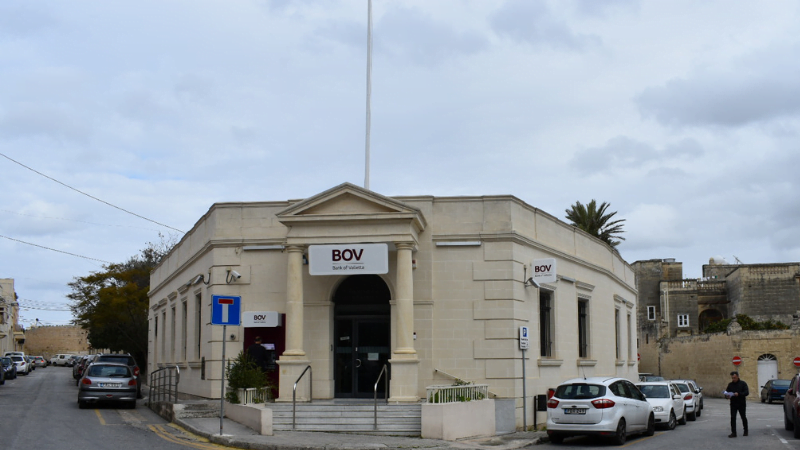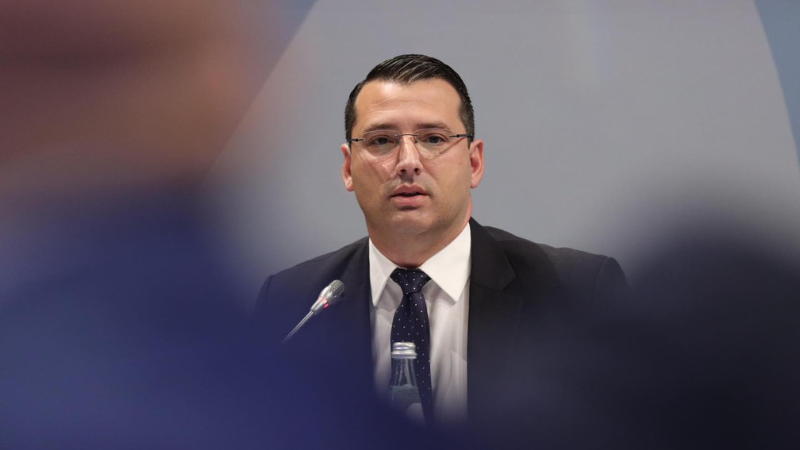“Your business is doing too well. I’m afraid we can’t work with you anymore.”
That simply doesn’t happen. But Joseph Muscat would have you believe that Bank of Valletta is losing its last US Dollar correspondent banking relationship “because of its success.”
Success at what, exactly?
Muscat claims ING cut BOV in a de-risking exercise because the bank was expanding too quickly. Other commentators took a similar line, using whataboutism to suggest that, “This isn’t just Malta, it’s happening to lots of small countries.”
But BOV’s (and Malta’s) success is growing with the wrong kind of high risk business.
Watch this short explanatory video to understand how correspondent banks work:
Now let’s set things straight in very clear terms.
Large banks are conducting these “de-risking” activities because they’re being held to a higher standard. Fines for aiding financial crime have increased in recent years from tens of millions of dollars to billions of dollars.
Why would ING wish to be held accountable for shady dealing in Malta?
Correspondent banks rely on the originating bank to conduct the proper due diligence checks on the source of funds they’re sending through the network. When the origin bank — in this case, BOV — sends through dirty money, the correspondent bank that receives and passes it along is criminally liable, too.
Banks are dropping customers — including other banks — in regions and business sectors that pose a high risk of money-laundering, terrorist financing, and sanctions evasion. Given how often Malta’s name comes up when talking about international money laundering, it’s no surprise that reputable international banks don’t want to be associated with it.
Sadly, this loss might have been avoided if Malta had functioning institutions.
As those who are so fond of using whataboutism love to point out, “Germany also had money laundering scandals. What about Deutsche Bank?” The difference is that action is was taken in those other countries, banks are investigated and fined, and criminal charges are levied. The fines you read about in Germany and the Netherlands are signs that their institutions actually work.
When evidence of money laundering was uncovered at the highest levels of government in Malta, no action was taken at all.
Well, I suppose running away counts as a sort of action. The police commissioner and the head of the FIAU both resigned when they realized doing their duty would mean investigating Konrad Mizzi, Keith Schembri, and the Prime Minister’s inner circle.
The Labour Party media machine also went into action, attacking critics who dared write about this corruption.
Nothing was also done about Pilatus bank — at least, not by Malta. The European Central Bank eventually ordered Pilatus shut down after the bank’s owner Ali Sadr was arrested in the US for evading sanctions against Iran.
You may remember Daphne Caruana Galizia wrote in June 2017 that Pilatus “holds accounts with Bank of Valletta which it uses to process transactions through BOV’s own correspondent banks.” Uh oh, there’s that connection with high level corruption again.
Pilatus’s connections to Politically Exposed Persons is worrying enough, but it isn’t an isolated case. We also saw Satabank’s accounts frozen last October for “billions of euros in suspicious transactions”.
Malta’s response to these banking and money laundering scandals was shocking when seen from abroad. Rather than fix the problem, they trot out Edward Scicluna to pretend it all away. In an interview memorable for its surreality, the Finance Minister told CBS News program 60 Minutes, “It looks bad, but it’s not.”
Foreign banks and foreign regulators aren’t buying it. Unfortunately, the average Maltese citizen is now going to pay the price for the complete impunity of Joseph Muscat’s friends.
At this point, you might be wondering why you should care? Correspondent banking only affects people who need to send wire transfers in US dollars, right?
Well, sort of.
A range of important financial transactions are conducted in US dollars, including paying remittances to finance international trade. Many crucial economic sectors are also priced in dollars, including commodities like fuel and large trades like aircraft leasing.
When a country is no longer able to conduct dollar-denominated transactions, these industries suffer. They either have to find non-traditional ways of sending money that doesn’t involve dollar transactions, or they have to eat the cost of currency conversions with every transaction.
The same is true for any business that pays for goods or receives funds in US dollars. Like it or not, the dollar is still the global currency. Lose access to it and you lose access to the largest global markets.
Muscat was aware of this in November 2016 when he said, “If Malta were to be cut out of the networks, it would be a huge problem! How else could you make payments or receive funds from abroad? But we are not even close to being at that stage. We are not in a situation where we are struggling to find correspondent banks. In fact, we were at the Sibos conference in Geneva in September where we made contact with a number of banks who are interested in establishing a correspondent relationship,”
Well, we’re at that stage now.
And it isn’t as though we haven’t seen similar things before.
The Caribbean country of Belize lost its last US dollar correspondent banking relationship in 2016. According to Reuters, Belizean businesses had to “set aside weeks to make routine payments to suppliers abroad that used to take moments.”
It was even worse for small businesspeople who couldn’t find alternative means of sending funds. “One Belize businessman, who declined to be named, said in order to pay a loan in Belize, he must travel to another Caribbean country to withdraw U.S. dollars and carry the cash back to Belize.”
The impact on businesses is just one angle. There’s also the other banks.
As The Economist pointed out in 2017, “When some of Latvia’s banks became infected with dirty money, all paid the price.” They all suffered the consequences despite Latvia’s attempt to clean up its image by shedding high-risk clients and conducting anti-money-laundering audits. Those actions came far too late.
Given what we saw in Latvia, it’s safe to assume that the correspondent banking crisis in Malta could spread beyond BOV.
The impact will be felt by everyone in Malta, no matter what Joseph Muscat tells you about the shocking success of the Maltese economy. He’s trying to divert your attention from these issues. Denial and misdirection is his speciality, and sometimes that misdirection crosses the line to pure invention.
Correspondent banking relationships aren’t cancelled because a local bank is doing too well.
Correspondent banking relationships are cancelled when a bank or a country becomes too high risk, too toxic to deal with.
Malta’s reputation is coming back to haunt it, and the blame for that lies firmly within Castille.












